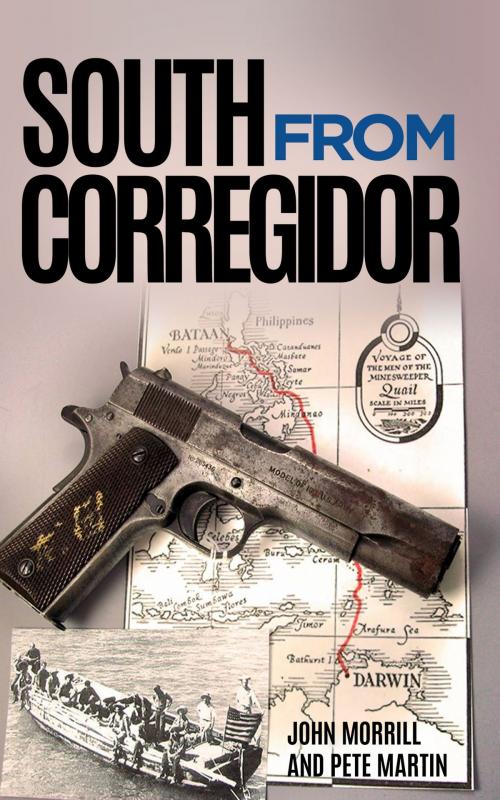South from Corregidor
Nonfiction, History, Military, United States, World War II, Biography & Memoir, Historical| Author: | John Morrill, Pete Martin | ISBN: | 9780359198719 |
| Publisher: | Azimuth Press | Publication: | November 6, 2018 |
| Imprint: | Azimuth Press | Language: | English |
| Author: | John Morrill, Pete Martin |
| ISBN: | 9780359198719 |
| Publisher: | Azimuth Press |
| Publication: | November 6, 2018 |
| Imprint: | Azimuth Press |
| Language: | English |
At the outbreak of the Second World War U.S.S. Quail was in the Philippines sweeping mines to provide access for American shipping to South Harbor, Corregidor. Damaged by enemy bombs and guns during the Japanese invasion of the island John Morrill and his fellow men decided to make the decision to scuttle their ship rather than allow it to be captured.
This led them to begin one of the most daring escapes of the Second World War.
Lieutenant Commander John Morrill and sixteen fellow sailors took a thirty-six-foot diesel boat nearly two thousand miles through Japanese controlled waters. They moved mostly at night, with a homemade sextant, some salvaged charts, with little fresh water and food, but even despite these difficulties they eventually made their way to Darwin, Australia.
"This is not only one of the best of the war books, it is a record of cooperative courage achieved by a group of men in a manner wholly American." The New York Times.
"A matter of fact, modest and inherently dramatic account of an isolated incident in the Pacific war." Kirkus Reviews.
At the outbreak of the Second World War U.S.S. Quail was in the Philippines sweeping mines to provide access for American shipping to South Harbor, Corregidor. Damaged by enemy bombs and guns during the Japanese invasion of the island John Morrill and his fellow men decided to make the decision to scuttle their ship rather than allow it to be captured.
This led them to begin one of the most daring escapes of the Second World War.
Lieutenant Commander John Morrill and sixteen fellow sailors took a thirty-six-foot diesel boat nearly two thousand miles through Japanese controlled waters. They moved mostly at night, with a homemade sextant, some salvaged charts, with little fresh water and food, but even despite these difficulties they eventually made their way to Darwin, Australia.
"This is not only one of the best of the war books, it is a record of cooperative courage achieved by a group of men in a manner wholly American." The New York Times.
"A matter of fact, modest and inherently dramatic account of an isolated incident in the Pacific war." Kirkus Reviews.















